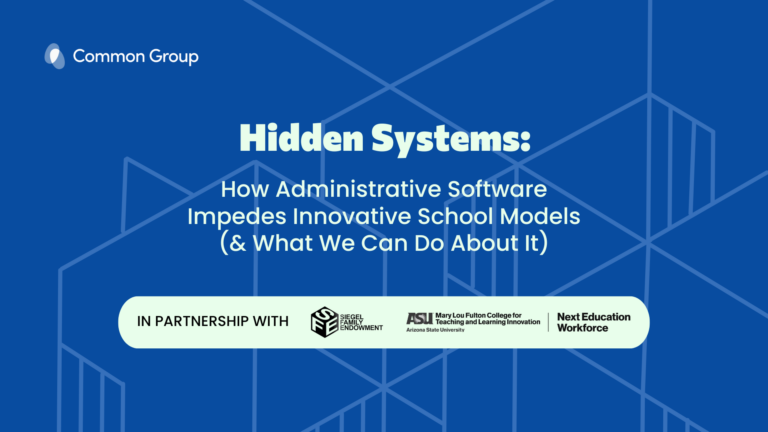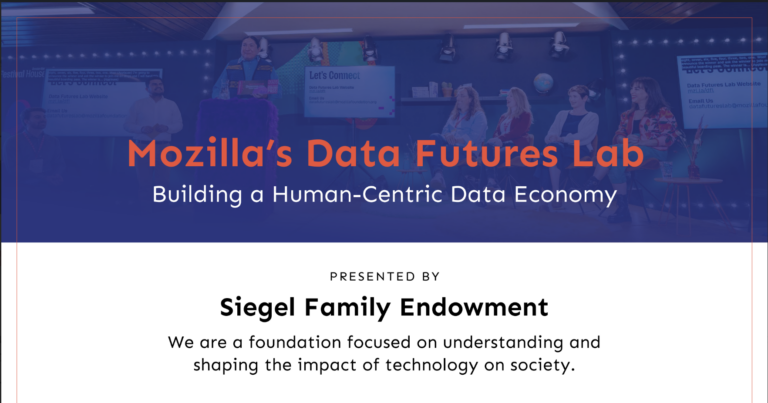by Kalani Leifer
What are the most impactful ways to create scalable, equitable opportunities for wealth-creation when barriers to entry and credential requirements are constantly changing? A critical segment of Siegel Family Endowment’s workforce grantmaking aims to develop inclusive entrepreneurial innovation ecosystems and career pathways that are open to and centered on historically excluded populations. A key grantee in this space is COOP Careers, an organization that aims to increase employment opportunities for recent first generation and low income college graduates by closing the social opportunity gap, and actively cultivating new social networks.
In this Q&A, COOP’s founder and CEO Kalani Leifer examines the ways in which his organization’s programs set participants up for success, and explores the strategic rules and rationales his team uses to make meaningful decisions about what kinds of skills to prioritize, how to engage with employers, and the nuanced role of social capital in expanding opportunity.
What are the characteristics of a “good job” in today’s economy? What standard should employees seek, and how can programs like yours motivate them to seek jobs that meet those standards?
COOP tackles a very specific but frustratingly widespread challenge: underemployment among first-generation and low-income college graduates. Overall, it clearly does pay to graduate. Compared to other young workers, recent college graduates (ages 22-27) are half as likely to be unemployed and they earn, on average, 50 percent more. But that’s not the whole story.
Fully half of recent grads earn less than $42,000, and one quarter earns less than $32,000 – below the living wage in many metropolitan areas. Over 40 percent are underemployed, and working in positions that don’t require a bachelor’s degree. Economic outcomes at “America’s Great Working-Class Colleges” — like the City University of New York and California State University — are starkly lower.
Our mission is to “overcome underemployment through digital skills and peer connections” — to help first-gen and low-income grads secure their first “good job.” This means a full-time position that requires a bachelor’s degree, pays benefits and a living wage, and contributes to an upward career trajectory. In our experience, these early-stage professional experiences are indeed steppingstones to increased responsibility, autonomy, compensation — and meaning.
We also believe isolation causes underemployment — especially isolation from peers. Skills and motivation alone will not get a resume to the top of the pile, nor can they help navigate challenges like rejection. We need relationships for all that, and think that social capital plays a major role in making the early stages of a career as successful as possible.
What criteria do you use to define “in-demand” careers?
Over the last seven years, COOP has found success by focusing on the “digital economy” (think tech but not coding) and by following our alumni into new parts of the field. While coding is clearly the “tentpole” skillset of the digital economy, it’s by no means the only way to take part in the bounty of Big Tech. Proficiency in coding requires an immense investment of time and energy, and it doesn’t necessarily build from the foundation of a (non-technical) undergraduate degree.
Most college graduates are essentially generalists, but that doesn’t stop privileged grads from landing good jobs in tech. At COOP, we know that our grads don’t need thousands of hours of additional training (on top of their bachelor’s) in order to contribute meaningfully to companies in the digital economy – with some training (and a timely dose of social capital), we can help them unlock the economic value of a non-technical college degree. Our 200-hour flagship program provides enough training for a “generalist” college grad to develop the necessary skills and context to secure a $50,000 job and a strong foothold in the digital economy.
COOP alumni lead 100% of our flagship program (as part-time “Cohort Captains”) and provide a generous stream of inbound job referrals. By mobilizing our alumni, we’ve created an organic and powerful “feedback loop” to ensure new and existing programs continue to focus on in-demand careers.
Why isn’t it enough just to focus on obtaining a job? Why should there be a focus on “career” and “upward mobility?”
For better and worse, careers in America are long and often turbulent — spanning almost half-a-century before retirement, if we ever get there. Recent grads are likely to have a dozen employers (or more) over the course of this epic journey, sometimes by choice but often due to forces beyond their control. There will be upheavals: recessions, pandemics, mergers, layoffs, toxic bosses, and midlife crises. The question isn’t whether we fall down, but how we rebound. And that depends almost entirely on the net(work) that catches us and connects us to whatever comes next.
That’s why we need to focus on the long-game — and on playing the game together. Careers are hard, but they shouldn’t be lonely. And this is especially true for first-gen grads, who will continue to be the “first” in their family (and often the “only” on their team) for the next 50 years. We’ve learned that overcoming underemployment and securing that first “good job” is just the first step toward upward mobility, economic independence, and building intergenerational wealth.
How do you see the conversations around traditional credentialing systems changing to meet new and emerging types of demands?
People tend to think of credentials primarily as a proxy for skills — including the bachelor’s degree, which we assume communicates a host of competencies to a potential employer. It’s these underlying skills (vague as they may be) that secure economic opportunity. Based on this premise, America has dramatically increased access to the bachelor’s degree over the last 50 years. What was once an exclusive domain for privileged white men has been democratized — by CUNY, Cal State, and other indispensable “working-class colleges” that serve “non-traditional” students.
But what if the confounding variable here is privilege? It could be that a bachelor’s degree is largely a proxy for the social capital we start with freshman year, then concentrate and multiply during four years of on-campus living. But that’s not the version of higher education that we’ve scaled and “democratized.” Most first-gen and low-income college grads don’t spend years marinating in social capital at a residential university: they work part-time or even full-time, commute long hours, likely transfer from one institution to another, and rarely start and finish with a defined cohort of peers in four years.
It’s tempting to explain underemployment through the “skills gap” narrative, which sounds serious and reassuringly meritocratic. While skills and credentials are important, they’re not enough to launch a career. To understand and overcome underemployment, we have to look beyond the strengths and perceived shortcomings of individual candidates.
Colleges play an essential role in the labor market, but that doesn’t mean they should be finishing schools (or coding bootcamps) for employers. Instead, credential programs like COOP should try to maximize the quality and quantity of peer relationships, especially among the vast majority of students who don’t live in dorms. And colleges should focus their limited career center resources on recent grads who are currently underemployed — exactly when they’re eligible for full-time roles and usually most isolated from each other.
What kinds of payment models for skills training programs are the most sustainable – both from a business perspective and from a student perspective?
At COOP, we don’t believe in asking first-generation and low-income college grads who are already loaded with crippling student debt to invest even more in their credentialing upfront, or by extracting future revenue from their hard-won paycheck.
We operate on the assumption that our grads are almost there and, again, don’t need thousands of hours of additional pre-employment training. At COOP, we’ve been able to keep our fully loaded unit cost at $5-6,000, less than one year of Pell Grant support. This is thanks to alumni mobilization, which we estimate saves us roughly $5-6,000 per person, versus a more traditional staff-led program model.
We believe that employers and the public sector can and should bear this cost in the long-term, through referral bonuses, retention support, and access to diverse talent; and through extended financial aid (e.g. an additional year of Pell Grant support tied to employment outcomes). If just a tiny share of federal education grants were dedicated to post-graduation career support, we could unlock immense value.
What do you believe has been critical to your success and impact in this space?
COOP’s success comes down to three key ingredients: intimate peer cohorts made up of underemployed college grads; mobilized alumni leaders who balance “paying it forward” with their busy day jobs; and just-in-time support immediately after graduation.





